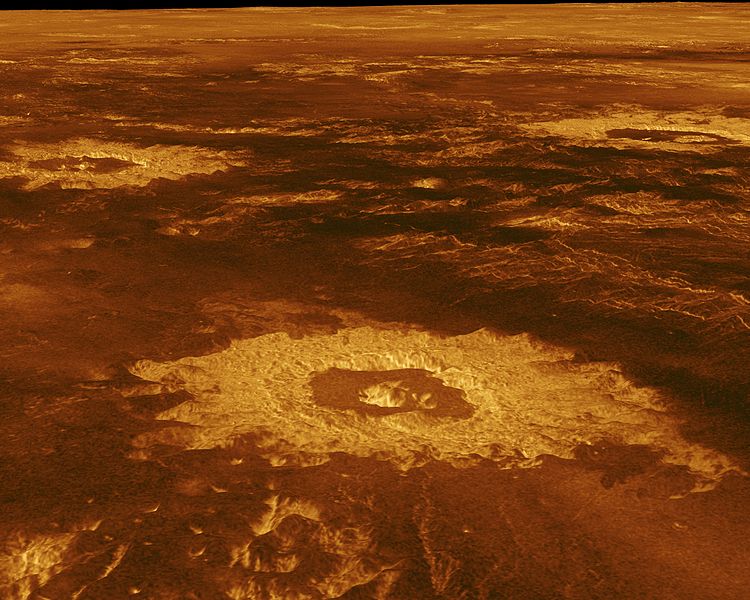English Across the Curriculum
The Solar System
Venus
Venus is the second planet in our solar system. It is sometimes called the Earth's twin, because it is about as big as our planet. Like the earth, Venus is covered with thick clouds and has an atmosphere. There is almost the same amount of gravity on Venus but the pressure on the planet is about 100 times bigger than on Earth. That means that you would be crushed if you tried to walk on the surface.
Venus is very different from our Earth. The clouds that surround the planet are thick and yellow. This makes it almost impossible to see the surface of Venus. The clouds are not made up of water, like on Earth. They have poisonous gases, mostly sulphur, in them. Below the clouds there is a thick atmosphere of carbon dioxide - so it is impossible for us to breathe on this planet.
Venus is the hottest planet in our solar system. This is because the sunlight that gets into the atmosphere is trapped there and can't get out. Temperatures can reach over 500 ° Celsius. We call this the greenhouse effect - the same thing happens on our Earth and warms up our atmosphere.
The surface of Venus is flat with a few higher mountains. One of them is even higher than Mount Everest. There are many volcanoes; most of them may still be active. Lava flows for hundreds of kilometers. Venus doesn't have very many craters because asteroids burn out before they hit the planet.
Venus orbits the sun in the same direction as the Earth. But it rotates in the opposite direction. This means that on Venus the sun rises in the west and sets in the east. Because it rotates so slowly, one day on Venus lasts about 240 Earth days, longer that the time it takes the planet to orbit the sun (224 days).
Some scientists think that, one day; it might be possible to live on Venus. They believe that if we put plants on the planet that produce oxygen there would be an atmosphere that we could breathe. And human beings might be able to start a colony on Venus.
Venus was named after the goddess of love and beauty. People believe this because Venus is the brightest star in the sky. It is sometimes called the morning or evening star.
